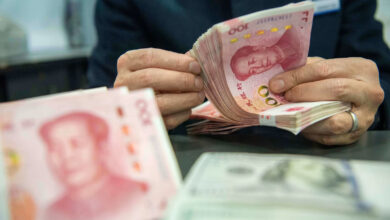Egypt's foreign reserves have increased to US$23.058 billion at the end of November from $19.041 billion a month earlier, the central bank said on Monday, continuing its strategy of building reserves after floating the currency last month.
The announcement was the first official reserve figure since the Egyptian pound was devalued on November 3, in a bid to restore investor confidence and encourage foreign currency inflows.
Egypt had about US$36 billion in reserves before the 2011 uprising that ousted president Hosni Mubarak and ushered in a period of political turmoil, scaring off tourists and foreign investors, key sources of hard currency.
In an effort to ration dollars and keep the pound artificially strong before the flotation, the central bank held weekly dollar auctions which drained its foreign reserves and hampered the country's ability to import.
The flotation helped Egypt clinch a US$12 billion, three-year loan from the International Monetary Fund last month, of which it received $2.75 billion last month.
The reserves were further supported, economists say, by a US$2 billion repurchase transaction that the central bank secured with global banks last month. The transaction with a consortium of international banks has a maturity of one year.
"The position of Egypt's central bank is improving," said Hany Farahat, economist at CI Capital.
"Aside from the outflows of pre-determined commitments, we expect that international reserves will continue to improve on the back of the gradual recovery of foreign inflows," he said.
The currency flotation was one of a series of economic reforms aimed at reducing the budget deficit and balancing the currency market.
The country of over 90 million citizens has been seeking a variety of funding sources, from development loans to foreign grants and aid, to plug its financing needs as it struggles with an acute US dollar shortage.




